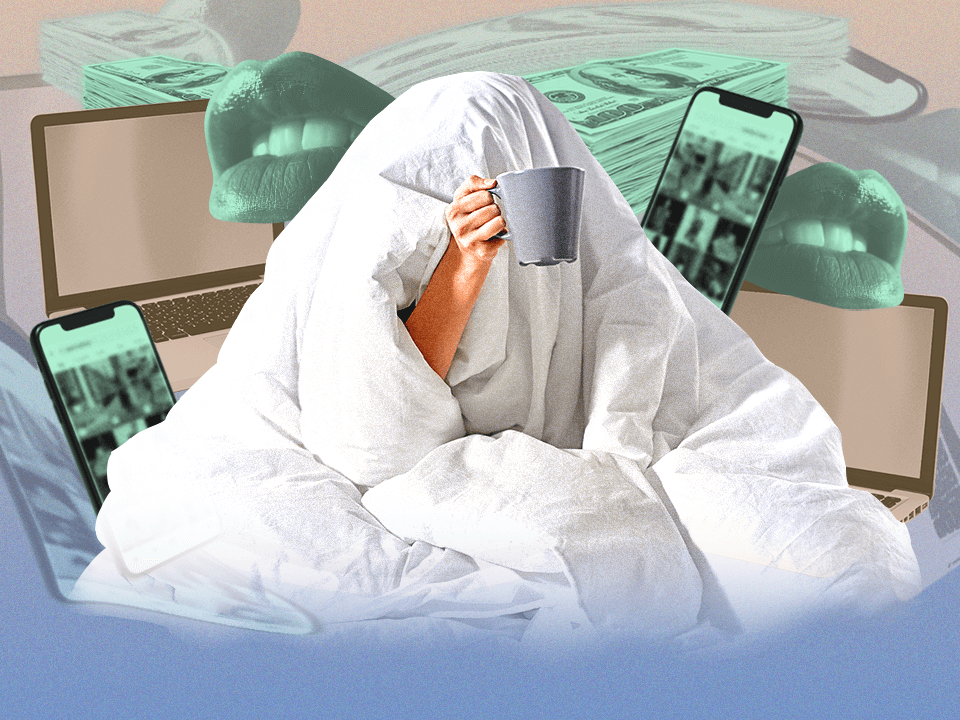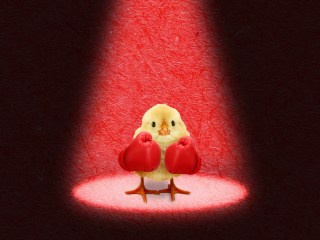How to Know if Your Anxious Feels Might Be an Anxiety Disorder
If you think you need some help, you probably do.
Everyone feels anxiety sometimes. You, your best friend, your mom, your dog. It’s a totally natural thing—especially if you’re about to walk into your annual work review, just found out your rent is going up again, or, ya know, made the mistake of checking Google News before bed (please don’t).
If you’re alive, anxious feels happen; it’s actually their job to keep you alive, says anxiety-focused therapist Aisha R. Shabazz, LCSW, owner of In Real Time Wellness. Your bod is constantly gauging whether you’re safe (and therefore feel safe to chill). When it senses you may not be, boom : anxiety. That response is meant to help you run, hide, fight, or even people-please your way to feeling secure.
So, yeah, it’s normal. “Anxiety only becomes problematic when it’s ramped up so much that everything—or more than you’d expect—seems unsafe or generally unpleasant,” Shabazz says.
But in a world where your boss can blow up your phone at midnight and the news literally never turns off, half the shit you deal with on an average Tuesday does feel threatening to your brain—even if you’re not actually at risk of being eaten alive. The point here: Isn’t everyone a little extra anxious these days?
Well, sort of. All of ~this~ can make it really effing hard to take care of ourselves. As a result, more and more people fit the bill for having an actual diagnosable anxiety disorder, says Shabazz. And considering 28.3% of U.S. adults reported experiencing anxiety symptoms in late July 2022, it feels a lot like widespread anxiety is a part of “the new normal.”
So how are you supposed to know when your anxiety is just random stress you’ll forget about in a few days or something diagnosable? We got you. Here’s how to tell whether your racing mind is actually a sign of an anxiety disorder, when to get help, and what a diagnosis actually means for your life. Deep breaths.
You’re anxious more than you’re not anxious.
If you feel anxious more days than not, you may be in anxiety-disorder territory, according to psychiatrist Juan Romero-Gaddi, MD, founder of Equal Mental Health. It’s kinda like you’ve got a noisy air conditioning unit constantly humming in the back of your head. It’s nonstop.
You’re always on edge.
Other telltale signs: You can’t focus, sleep is a struggle, and/or your baseline mood is irritable, angry, or frustrated. Plus, constantly waiting for something bad to happen (are your shoulders scrunched up to your ears right now?) could also signal that something is up, Dr. Romero-Gaddi says. These can sometimes be symptoms of generalized anxiety disorder, or a constant-ish state of fear, worry, and dread that gets in the way of living your life. (Fun, right?)
You’ve had a panic attack or two.
In some cases, people who have generalized anxiety disorder also experience panic attacks, says Dr. Romero-Gaddi. This basically means that on top of the nonstop lack of chill, you also sometimes get anxiety that’s so intense that you shake, feel tingly, have trouble breathing, and maybe even feel like you’re having a heart attack. This can also happen to people who have panic disorder, another type of anxiety disorder.
Everyday interactions make you feel self-conscious.
Being nervous about meeting new people or having to make small talk all night is normal, but if you’re stressing about what people think of you or being judged to the point that you feel overly self-conscious in super common situations, like office small talk, you might have some social anxiety. That’s especially true if that anxiety leads you to avoid social moments you’d normally want to be a part of, says Dr. Romero-Gaddi. Getting super sweaty, blushing, feeling nauseous, trembling, talking really quietly, and avoiding eye contact can all be symptoms of that kind of anxiety, per the National Institute of Mental Health.
Being out and about in the world stresses you out big time.
While you might think of agoraphobia as being afraid to leave your house, Dr. Romero-Gaddi explains it can also manifest as feeling anxious in crowded areas like grocery stores or elevators. Dr. Romero-Gaddi says he’s seen loads more cases of this since the start of the pandemic made places like that feel unsafe basically overnight.
Your anxiety is messing with your job, social life, relationships, whatever.
Skipping out on your friend’s birthday bash after a brutal week at work or having trouble sleeping before seeing an S.O. you know you need to break up with is probably NBD. But if you’re on the struggle bus with work or school, staring at your ceiling all night every night, moody as hell, or avoiding social activities or hobbies you typically enjoy on a regular basis (think more often than not for the last few months), you’re swimming in anxiety disorder territory, according to Dr. Romero-Gaddi.
You think you might need some help.
Whether you ultimately fit the criteria for an anxiety disorder or not, feeling anxious enough to wonder if you need help is the only reason you need to get some. A therapist or psychiatrist who specializes in anxiety can figure out whether you’re diagnosable and, if so, what type of anxiety disorder best matches your lived experience. From there, your diagnosis basically serves as a compass for your treatment plan, helping you navigate your way to feeling more balanced, even when the world is a cluster.
If you are diagnosed with an anxiety disorder and you’re not sure how you feel about that, it’s OK. Mental health diagnoses are complicated. But receiving one can actually be the most validating thing ever. “Many people feel liberated; like they finally have a direction to go in,” Shabazz says. A diagnosis also gives your treatment a sense of direction, since certain types of therapy and medication are helpful for anxiety.
And while the name or label can help steer your journey, it could never capture all of the uniqueness and complexity that makes you, you.
Wondermind does not provide medical advice, diagnosis, or treatment. Any information published on this website or by this brand is not intended as a replacement for medical advice. Always consult a qualified health or mental health professional with any questions or concerns about your mental health.




